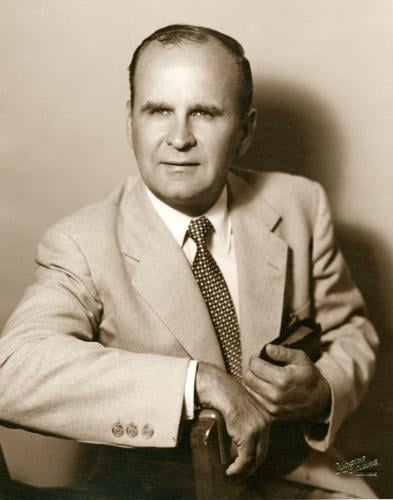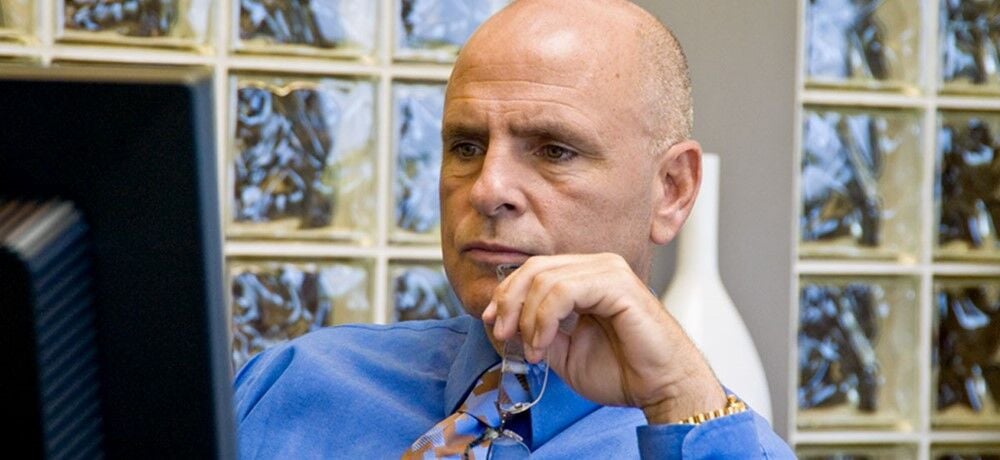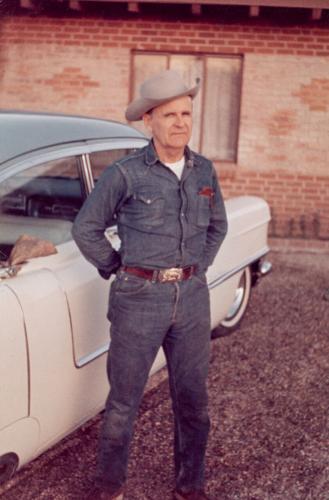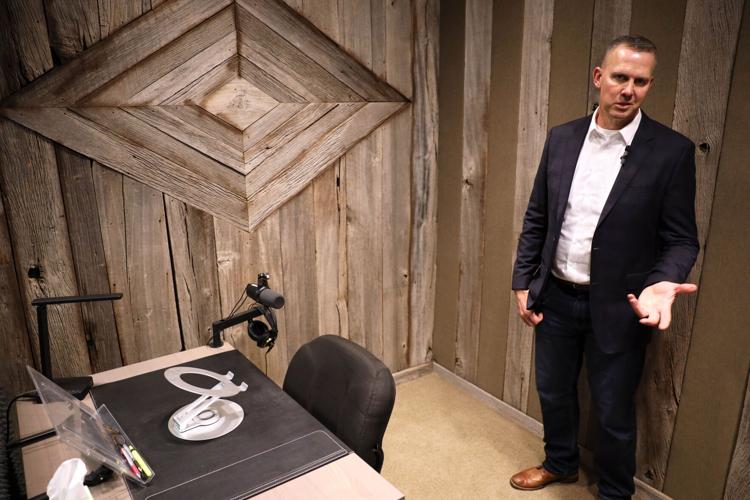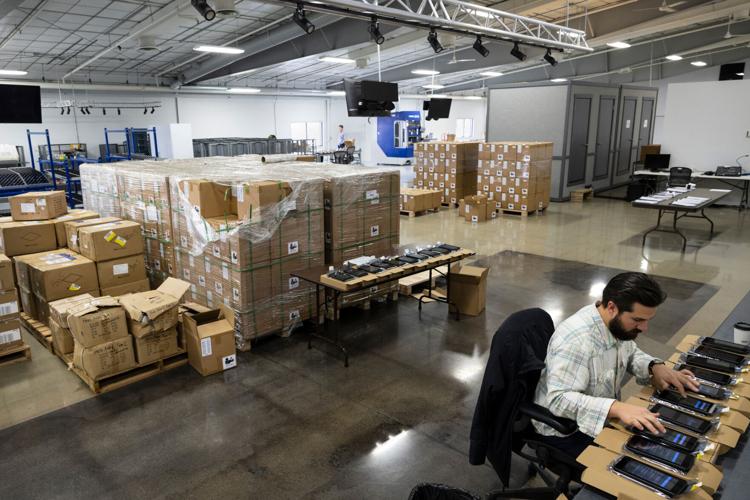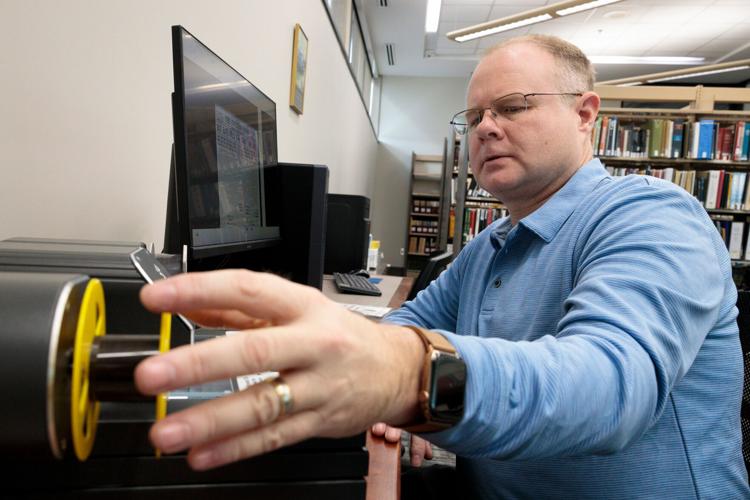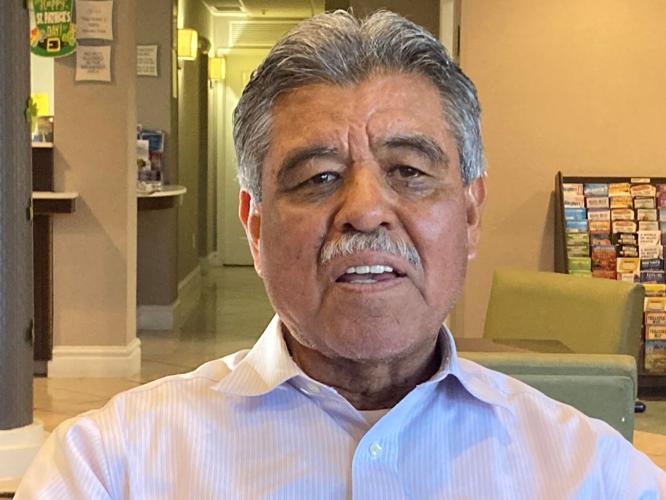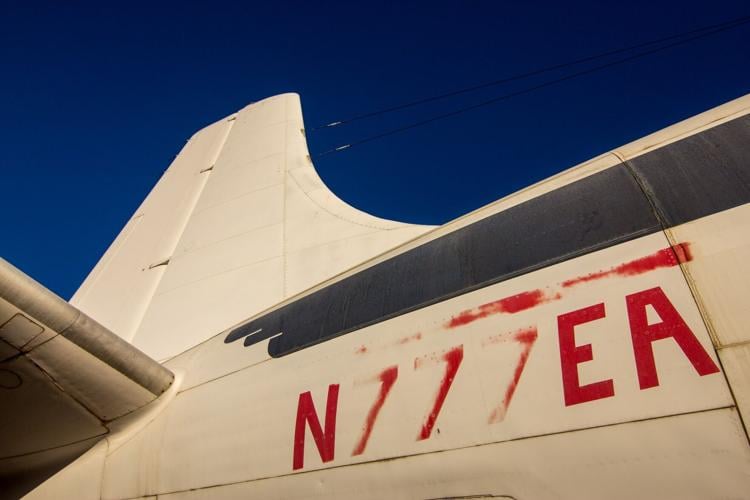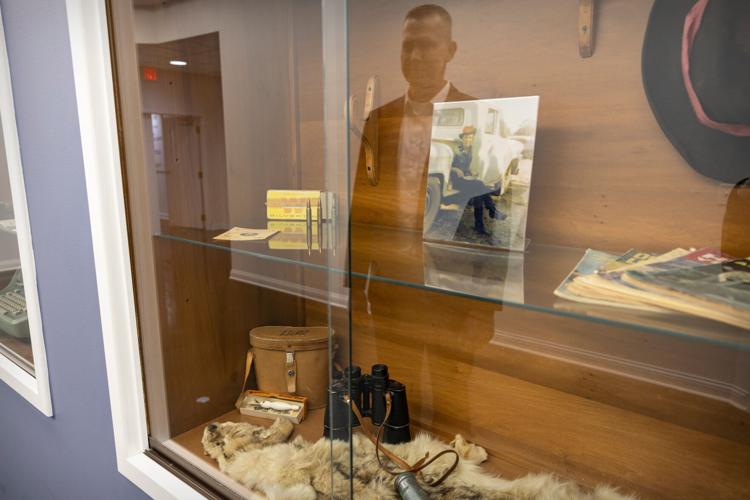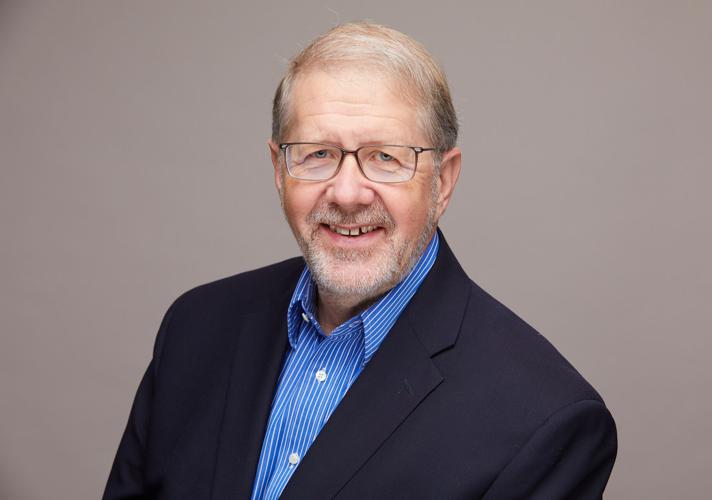David Moseley used to believe in The Message, the faith founded on the teachings and sermons of the late Rev. William Branham.
But he’s come to believe it’s all about the money — and his family is a prime example.

Rev. William Branham
Branham was a preacher, faith healer and some say prophet whose tent revivals in the ‘40s and ‘50s drew thousands.
Moseley’s family members got to know Branham and hunted for big game with the evangelist. On one hunting trip, Branham mentioned the idea of having a plane to spread his message, to fulfill his vision of a “mammoth” global tent revival campaign, larger than anything he’d done before, and it became the family’s mission to get him one.
Branham died in 1965. But Moseley said his family didn’t let the fact that Branham had died get in the way of their dream. So in the '70s, they bought the dead prophet an airplane for his use when he came back to life, as they believe he will.
It wasn’t just any plane. They bought the DC7 previously used by former First Lady, Lady Bird Johnson.

The interior of the Douglas DC-7 Seven Seas aircraft that Message believers bought for their prophet, William Branham, to fly around the world. The plane was also once used to fly former First Lady, Lady Bird Johnson across the nation. Photo taken during a tour of the plane at the Phoenix-Goodyear Airport in November 2012.
Moseley said unprincipled Message pastors used the plane to raise money. He said one church in Phoenix sold tickets to the faithful for them to use on flights once Branham came back to life.
Three Moseley brothers — Moseley’s father and two uncles — were supposed to fly the plane together. But Moseley’s father, who was to be the main pilot, died in 1975. One of the other brothers, Evan Moseley, then took up the mantle of leading the family’s effort to maintain and refurbish the plane.
Evan Moseley saved somewhere between $5 million and $10 million to repair the plane and get Bramham’s ministry airborne, David Moseley said, adding that the money is in an “ironclad” trust account that can’t be touched until Branham rises from the dead.
“That’s how deeply this is ingrained in all of us,” David Moseley said. “Our family revolved around that airplane. Everything they did, every extra dime they had, they were pouring it into making more money to fly the airplane, in order to get that airplane up to airworthiness.”
To this day, Moseley said the plane still sits at Phoenix Goodyear Airport, waiting for the prophet’s return.

Message believers bought this Douglas DC-7 Seven Seas aircraft to fly their prophet, William Branham, around the world. Here, the plane is pictured at the Phoenix-Goodyear Airport in November 2012.
Moseley said it all points up to the greedy side of The Message, a religious sect that has perhaps 3 million followers on every continent except Antarctica, according to estimates from an organization called Voice of God Recordings.
Since his death, Branham’s ministry has grown not just in terms of followers, but also in financial scale. The Message has become a multimillion-dollar enterprise comprised of thousands of churches and organizations dedicated to spreading Branham’s teachings. But critics, like Moseley, say Message leaders only care about profiting off of Branham’s words.
“It’s all about money,” he said. “And if you step on their money flow, you are in for it. It’s horribly bad.”
Branham’s son and Voice of God Recordings president Joseph Branham disputed that characterization.
He declined to be interviewed but answered some questions via email. With about $20 million in revenue each year, Voice of God Recordings is the largest organization associated with The Message today. Joseph Branham said his goal is to continue his father’s work of connecting people with the Bible “exactly as it is written.”
“I have not found such a ministry like this in all the world and have a burden on my heart for everyone to hear of this ministry,” Branham said of his father’s religious movement.
“There are some in the religious community who are in it for the wrong reasons. For instance, one TV evangelist makes approximately $55 million dollars per year, has a mansion worth $10 million, a $68 million dollar private jet, a Lamborghini, a yacht, etc. I don’t believe in doing that. Rev. Branham always shunned those things. Truly, money can be the root of all evil.”

Joseph Branham
Alleged financial wrongdoing
A Message pastor in Trinidad walked into a bank in late 2019 with 28 cardboard boxes in tow, the Trinidad Express reported. Each box contained about $1 million in cash.
Pastor Vinworth Dayal claimed the $28 million in old Trinidad and Tobago paper dollars that he tried to exchange for a new currency was solely tithes — religious donations — from his congregants at Third Exodus Assembly church in Longdenville, according to the newspaper. But local police thought otherwise.

Dayal will soon stand trial for money laundering. Authorities say Dayal obtained the money — worth about $4 million in U.S. dollars — from criminal conduct.
Dayal was still preaching at the Third Exodus Assembly as of September, according to the church’s website. The church cited Branham on its homepage and linked to a website filled with doomsday predictions echoing the “End Times” doctrines that are a signature of Branham’s ministry.
It’s not the first time a Message organization has been accused of financial misdeeds.
In 1997, Voice of God Recordings was accused of accepting a large donation from a follower who obtained the funds nefariously, according to United States Tax Court documents. Voice of God Recordings resolved the dispute by paying the money back.
Wayne C. Evans, a Message follower since the age of 10, was accused of illegally funneling more than $1 million from the Tohono Oʼodham Nation’s farming authority to his construction company. Evans then gave $820,000 of it to Voice of God Recordings, according to court records. The tribe sued Evans for racketeering in 1997.

William Branham pictured by his car in Tucson, Arizona in 1964.
Evans is the father of VGR spokesperson Jeremy Evans and Tucson Tabernacle pastor Daniel Evans.
“He never stole money, but he hired his own private construction company to do the work on the Reservation, which was a conflict of interest, and illegal to do,” Jeremy Evans said. “The money was earned (there was no issue with that), but Dad broke the law by hiring his own company to do it. Although I am not proud of how he did that, it was completely detached from VGR.”
Voice of God Recordings was also sued, but the tribe did not accuse the nonprofit of knowingly participating in fraud. The FBI investigated VGR and found "there was no collusion," Jeremy Evans said. VGR settled the civil case by agreeing to pay the O’odham Nation $820,000.
“In good faith, once VGR heard of the case and its verdict, they gave all funds back to the Indian Tribe to reclaim,” Evans said. “Of course, VGR had no knowledge of any embezzlement scheme until after the verdict was announced and should not be blamed for that.”
Wayne Evans ultimately pleaded guilty to embezzling $1.6 million in 2001. He was sentenced to 15 months in prison with three years of supervised release and ordered to pay $140,000 to the O’odham Nation.
William Branham also had to pay tens of thousands to settle a financial dispute. He said in a 1962 sermon that the IRS spent five years investigating him for tax evasion. The IRS alleged he owed the federal government more than $300,000 in delinquent taxes — more than $3.1 million in 2024 tax dollars.
These allegations came about because people donating to his church, the Branham Tabernacle, made checks out to “William Branham” instead of to the “Tabernacle Foundation,” Branham explained. For the checks made out to him, Branham signed them to endorse them and then transferred them to the foundation. He didn’t know that signing them made them count as personal income for which he owed taxes.
“The courts never had a question with regards to any of the funds being misused for personal gain by William Branham,” Jeremy Evans said.
To settle the back taxes, Branham borrowed $40,000 from the bank and used that money to pay the government back in 1962, according to Branham and Evans. Branham said he planned to pay $4,000 each year over 10 years to repay the bank. He died three years later.

Jeremy Evans, spokesperson for Voice of God Recordings, shows one of the recording studios in the nonprofit’s office and production facility Jan. 15, 2024, in Jeffersonville, Ind. Voice of God Recordings’ mission as a nonprofit is to distribute William Branham’s more than 1,200 recorded sermons around the world. The nonprofit has translated some of the sermons into 70 different languages and is working on translating all of them into both written form and new recordings with interpreters.
Money machine
For decades, Jorge Hernandez Jr. traveled all over Latin America with his father, helping to establish congregations committed to Branham’s message. Hernandez’s family is originally from El Salvador but lives in Phoenix now.
Hernandez, 58, left The Message in 2023 after coming to believe Branham was not a prophet and that the churches were operating as money-making machines.
“When you hear the word missionary, immediately you think about people helping people — feeding the poor, clothing the poor, taking medicines,” Hernandez said. “It’s nothing like that.”
The primary goal of the missionary work was to start new churches and help the money flow, Hernandez concluded after some soul-searching.
Once a pastor had a substantial congregation of maybe 100 congregants, the pastor could establish new churches and collect tithes from them as well, although they are nominally independent, Hernandez said. It’s a predictable pattern that happens across Central America, he said.
“The pastor gets big. He starts opening churches in different cities,” Hernandez said. “They all have to report to him and send their money to the mother church.”
Money flowed not just to the church and the pastor, but also to Voice of God Recordings, Hernandez said. It was a common rule that the churches would pay a “tithe of tithes” — one-tenth of what the pastor received in tithes — to VGR’s office in Jeffersonville Hernandez said.
“All of the churches in Latin America and every country in the world, it's a law that when you belong to The Message that you have to send a tenth of a tenth to the Voice of God,” Hernandez said. “And that's exactly where they get their income.”

Voice of God Recordings at 5911 Charlestown Pike in Jeffersonville, Ind. is pictured Jan. 15, 2024. The nonprofit’s goal is to distribute the sermons of the late Rev. William Branham around the world. Its facility has a lobby area, multiple office spaces, recording studios, a kitchen area, a lounge space, a small chapel, multiple warehouses, a packaging center and a production facility that creates computer tablets with Branham’s sermons. Branham, a ‘50s-era healing revivalist believed to be a prophet, died in 1965 but has millions of followers to this day.
Evans vehemently denied the accusation that VGR requires churches to donate. He said VGR believes in the practice of tithing but has never asked people to pay tithes to Voice of God Recordings.
“What an absurd statement,” Evans said when asked for comment on Hernandez's description. “We have never heard the term ‘tithe of tithes’ before. Whoever this man is who made up this statement is obviously not a credible source.”
Joseph Branham said VGR does not engage in fundraising. He added that their products are sold at or below cost and events are free.
“Since 1981, we have never asked for money through a return envelope in the mail, on the website, or at our events,” he said.
Said Evans: “We take the same stance as William Branham took with regards to money: when the funds run out, it is time for us to stop doing what we are doing.”

Worker Christopher Wenger, 28, prepares and packages online orders for booklets containing sermons of the late Rev. William Branham at Voice of God Recordings’ production facility Jan. 15, 2024, in Jeffersonville, Ind. Branham, a ‘50s-era healing revivalist who was believed to be a prophet, died in 1965 but has millions of followers to this day. Voice of God Recordings’ mission is to spread Branham’s sermons worldwide. The nonprofit used to do that primarily through the distribution of books, but changed to mp3 players and then to tablets, which are its focus today.
Massive enterprise
Joseph Branham and Jeremy Evans would not reveal VGR’s donors but shared information on spending and allowed a Lee Enterprises reporter to tour the nonprofit’s headquarters in Jeffersonville, Indiana, in January.
A long winding road leads up to the building, which sits on a hill behind a small pond. The sterile lobby has crisp white walls and shiny black tiles that reflect light. A photo of William Branham hangs on the lobby wall, and the pulpit he once preached from stands by the glass windows.

A pulpit that the Rev. William Branham preached from in the ‘50s is preserved in the lobby of Voice of God Recordings in Jeffersonville, Ind. on Jan. 15, 2024. Voice of God Recordings is a nonprofit that distributes Branham's recorded and written sermons around the world. Branham died in 1965. Millions of people around the world still follow his teachings to this day and believe he was a prophet.
Signs of Branham are present throughout the facility, but in one hallway, three glass cases are filled with memorabilia. Books, magazines, prayer cards, photos and hand-written letters line the shelves. Visitors can see Branham’s old typewriter, pen holder and microphone.
“They’re not meant to be relics,” Evans says as he describes the cases. “But it’s just interesting. People from around the world come here, and they see,” he gestures, “‘Oh cool, Brother Branham’s hat.’”
The building also contains multiple office spaces, a lounge with white leather couches and foosball tables, a kitchen area, a small chapel, a mail and packaging center, recording studios and warehouses stacked with boxes. The nonprofit’s assets, most of which were land, buildings and equipment, totaled $49 million in 2023, according to the nonprofit's 990 tax form.
In one warehouse, more than 3,000 boxes filled with computer tablets sat stacked from floor to ceiling on pallet racks. Some had labels: Benin, Democratic Republic of the Congo, Ivory Coast, Kenya, Nigeria, Rwanda, Philippines and Thailand.

Jeremy Evans, spokesperson for Voice of God Recordings, describes the boxes of computer tablets stacked in a warehouse at the nonprofit’s production facility Jan. 15, 2024, in Jeffersonville, Ind. The tablets, which the nonprofit created in-house, contain the Bible and William Branham's sermons translated into the language of the recipient. They'll be shipped worldwide.
Voice of God Recordings planned to ship those tens of thousands of tablets worldwide. Produced in-house at a tablet production facility inside the headquarters, the tablets contained Branham’s written and recorded sermons, the Bible, children’s games and other resources, all translated into the language of the recipient.
Voice of God Recordings says it produced more than 62,000 tablets in 2023 at about $200 per tablet — more than $12.4 million in production costs.
The nonprofit has translated Branham’s more than 1,200 sermons into more than 70 languages so far, Evans said. Most languages have around 100 to 200 sermons available in text and audio, while some have about 600 sermons translated. Evans said the goal is to translate every Branham message into all languages — a massive undertaking.
Voice of God Recordings had about $29 million in revenue and $25 million in expenses in 2023, the most recent tax year available, according to the organization’s 990 filings. Most of its expenses go to producing and shipping its tablets. Some money also goes to printing sermon booklets, recording sermons in different languages, running a youth ministry camp and charitable work.
VGR’s profit fluctuates significantly from year to year, and in some years it has operated at a loss, its tax forms show. Any revenue that nonprofits make doesn’t go to shareholders or individuals but rather is put back into the organization. Joseph Branham makes a $130,000 salary for running Voice of God Recordings, according to the 990 filing.
For the last 12 years, Voice of God has averaged about $20 million in revenue each year.

Worker Christopher Wenger, 28, prepares and packages online orders for booklets containing sermons of the late Rev. William Branham at Voice of God Recordings’ production facility Jan. 15, 2024, in Jeffersonville, Ind. Voice of God Recordings’ mission is to spread Branham’s sermons worldwide. The nonprofit used to do that primarily through the distribution of books, but changed to mp3 players and then to tablets, which are its focus today.
About a third of that revenue came from a $100 million donation the nonprofit received from a single individual in the tax year ending in June 2011. Branham declined to share the individual’s name.
The following tax year, Voice of God Recordings launched the Jehovah Jireh Foundation and transferred the $100 million to the foundation, according to IRS records. Branham said the foundation’s purpose is to “better manage our contributions and diversify our investments.”
Since its creation, the foundation has incrementally funneled a total of $87 million in cash grants back to Voice of God Recordings.
Hackney said there’s no threshold for how much nonprofit revenue is too much as long as the nonprofit is still doing charitable work.
VGR provides food, shelter, transportation and thousands in cash to support dozens of Ukrainian families fleeing war-torn areas of their country, Branham said. VGR sent teams to distribute food, clothes and sometimes building materials to families during the aftermath of a recent typhoon in Mozambique, drought in Zimbabwe and the 2010 earthquake in Haiti, he said.
The nonprofit also paid for the construction of more than 100 homes in Haiti, Branham added.
“Almost all of the funds that come in here at Voice Of God Recordings are sent to those who can’t afford the means to hear the gospel,” Branham said. “We want to educate them, provide tablets to them, help provide solar energy to them, feed them, make better citizens of them by expressing our love to them in any way we possibly can.”

Technician Ben Jones, 33, tests several “Agapao” tablets before packaging them for international shipping at the Voice of God Recordings production facility in Jeffersonville, Ind. on Jan. 15, 2024. Produced entirely in-house, the tablets contain the Bible, all sermons of the late Rev. William Branham, children’s games and other resources — all translated into the language of the recipient.
Message critics
Some former Message followers say there are flaws in the sect’s religious beliefs that leaders either willingly or naively ignore to protect their money.
“There’s a concerted effort to shut up people who are speaking negatively about The Message for sure, and they have money,” said former Message believer and Arizona resident Fumiko Tipping. “They are in it for the money.”

Bergen
A growing group of former believers, including some former pastors, have left The Message and are speaking out against Branham’s ministry.
Former Message believer Rod Bergen started his website, Believe the Sign, with his son as a pro-Branham site but switched the site to an anti-Branham research platform in 2012.
“I was trying to prove The Message to be true,” Bergen said. “And I failed. I failed really badly.”
Believe the Sign and William Branham Historical Research, which was started by former believer John Collins, are the two most well-known websites seeking to debunk Message beliefs. But others, such as Searching for Vindication, have sprouted up as well.

John Collins, an ex-Message member and researcher who has written several books about the late Rev. William Branham, adjusts microfilm in the Jeffersonville Township Public Library on Jan. 13, 2024. Collins has spent countless hours researching in the library, including at one point examining every local newspaper published over a several-month period surrounding June 1933. Collins found no newspaper record substantiating Branham’s claim that he baptized 500 people in the Ohio River in front of a crowd of 10,000 as a “mystic light” appeared overhead.
The researchers have found factual inaccuracies in Branham’s life story as well as in his prophecies and visions. For example, Branham claimed he successfully predicted the death of 16 men during the construction of a Jeffersonville, Indiana, bridge. Believers point to a local lawyer who claims his family member saw the deaths. But there’s no record of such an accident happening, and the bridge construction was completed years before Branham said the deaths occurred.
“Nobody actually fell and drowned while making this bridge,” Collins said while standing in front of the Municipal Bridge in January. A stone marker on the bridge read “erected 1928-1929” — seven years before Branham said the construction accident happened. “The math doesn’t work.”
This group of researchers and Voice of God Recordings have clashed. In an interview, Evans tried to discredit Collins’ character and threatened to sue him over copyright violations. Evans said VGR hopes to shut his website down and “bury his neck in lawyers’ documents.”

The Municipal Bridge is pictured in Jeffersonville, Ind. on Jan. 15, 2024. The late Rev. William Branham, who was believed to be a prophet, had a vision about 16 workers falling and drowning during the construction of the bridge. Branham’s followers believe the prophecy, though they acknowledge a lack of historical records to substantiate Branham’s claims. Ex-Branham followers tried to prove the 16 deaths happened but found no evidence after a review of local newspapers, engineering records and Coast Guard logs. The group found only two deaths during the construction of the bridge, both from blunt-force injuries, not drownings. The bridge was completed in 1929, years before the day Branham predicted the worker deaths would occur.
Joseph Branham said the criticisms they receive about their finances often come from disgruntled former members.
“We know people will always be critical of any organization worth a substantial amount, especially in this case, from those who despise William Branham’s teachings,” Branham said via email. “But I honestly can’t understand how even our greatest critic could accuse us of mishandling funds. That is so ridiculous, to say the least.”
Even some who still believe The Message have a negative view.

Saucedo
Juanito Saucedo, of Phoenix, has traveled the United States and Latin America as an evangelist, preaching The Message of William Branham. He’s a true believer and an inveterate traveler.
But Saucedo, who began viewing Branham as a prophet when he was a teen in Mexico City, is skeptical of the way he sees The Message being monetized. He noted that around the world the tiny churches that listen to tapes of Branham and have no pastor often tithe to Voice of God Recordings.
“All these evangelists have built their kingdoms,” Saucedo said in Spanish. “Billy Graham has his kingdom. Oral Roberts has his university. And the Voice of God has its own.
“If Brother Branham were to come to life and see what they’ve built, he would take a shovel and pick and knock down everything they’ve done in his name.”

Message believers bought this Douglas DC-7 Seven Seas aircraft to fly their prophet, William Branham, around the world. The plane was also once used by former First Lady, Lady Bird Johnson. Here, the plane is pictured at the Phoenix-Goodyear Airport in November 2012.

Message believers bought this Douglas DC-7 Seven Seas aircraft to fly their prophet, William Branham, around the world. The plane was also once used by former First Lady, Lady Bird Johnson. Here, the plane is pictured at the Phoenix-Goodyear Airport in November 2012.

Message believers bought this Douglas DC-7 Seven Seas aircraft to fly their prophet, William Branham, around the world. The plane was also once used by former First Lady, Lady Bird Johnson. Here, the plane is pictured at the Phoenix-Goodyear Airport in November 2012.

Message believers bought this Douglas DC-7 Seven Seas aircraft to fly their prophet, William Branham, around the world. Here, the plane's interior is pictured during a tour at the Phoenix-Goodyear Airport in November 2012.

Message believers bought this Douglas DC-7 Seven Seas aircraft to fly their prophet, William Branham, around the world. Here, the plane's interior is pictured during a tour at the Phoenix-Goodyear Airport in November 2012.

Message believers bought this Douglas DC-7 Seven Seas aircraft to fly their prophet, William Branham, around the world. Here, the plane's interior is pictured during a tour at the Phoenix-Goodyear Airport in November 2012.

Message believers bought this Douglas DC-7 Seven Seas plane to fly their prophet, William Branham, around the world. Here, the plane's tail number, N777EA, is seen on the plane at the Phoenix-Goodyear Airport in November 2012.

Message believers bought this Douglas DC-7 Seven Seas aircraft to fly their prophet, William Branham, around the world. The plane was also once used by former First Lady, Lady Bird Johnson. Here, the plane is pictured at the Phoenix-Goodyear Airport in November 2012.

A lounge area at Voice of God Recordings’ office and production facility Jan. 15, 2024, in Jeffersonville, Ind. The lounge is often used as a space for youth groups to gather.

Technician Ben Jones, 33, inserts SD cards for several “Agapao” tablets before packaging them for international shipping at the Voice of God Recordings production facility in Jeffersonville, Ind. on Jan. 15, 2024. Produced entirely in-house, the tablets contain the Bible, all sermons of the late Rev. William Branham, children’s games and other resources — all translated into the language of the recipient. “It's their own computer that we send across the world free of charge,” says Jeremy Evans, spokesperson for Voice of God Recordings.

William Branham memorabilia on display at the nonprofit Voice of God Recordings in Jeffersonville, Ind. Jan. 15, 2024. Branham loved the outdoors and hunting. The nonprofit’s spokesperson Jeremy Evans is seen in the reflection. Voice of God Recordings distributes written and recorded sermons of Branham worldwide.

Researcher and ex-Message member John Collins walks across the Ohio River Jan. 13, 2024 on the Big Four Bridge, which connects Louisville, Ky., to Jeffersonville, Ind. Branham claimed he prophesized that 16 men would fall and drown during the construction of a different bridge nearby, the Municipal Bridge. Message believers say they trust Branham’s vision, even though Collins and other researchers have found no newspaper, engineering or Coast Guard records of the 16 drownings. Collins said Branham may have confused his bridges. This bridge, the Big Four Bridge, had 37 deaths during its construction, including 21 men who fell to their deaths and drowned during an 1893 bridge collapse.


